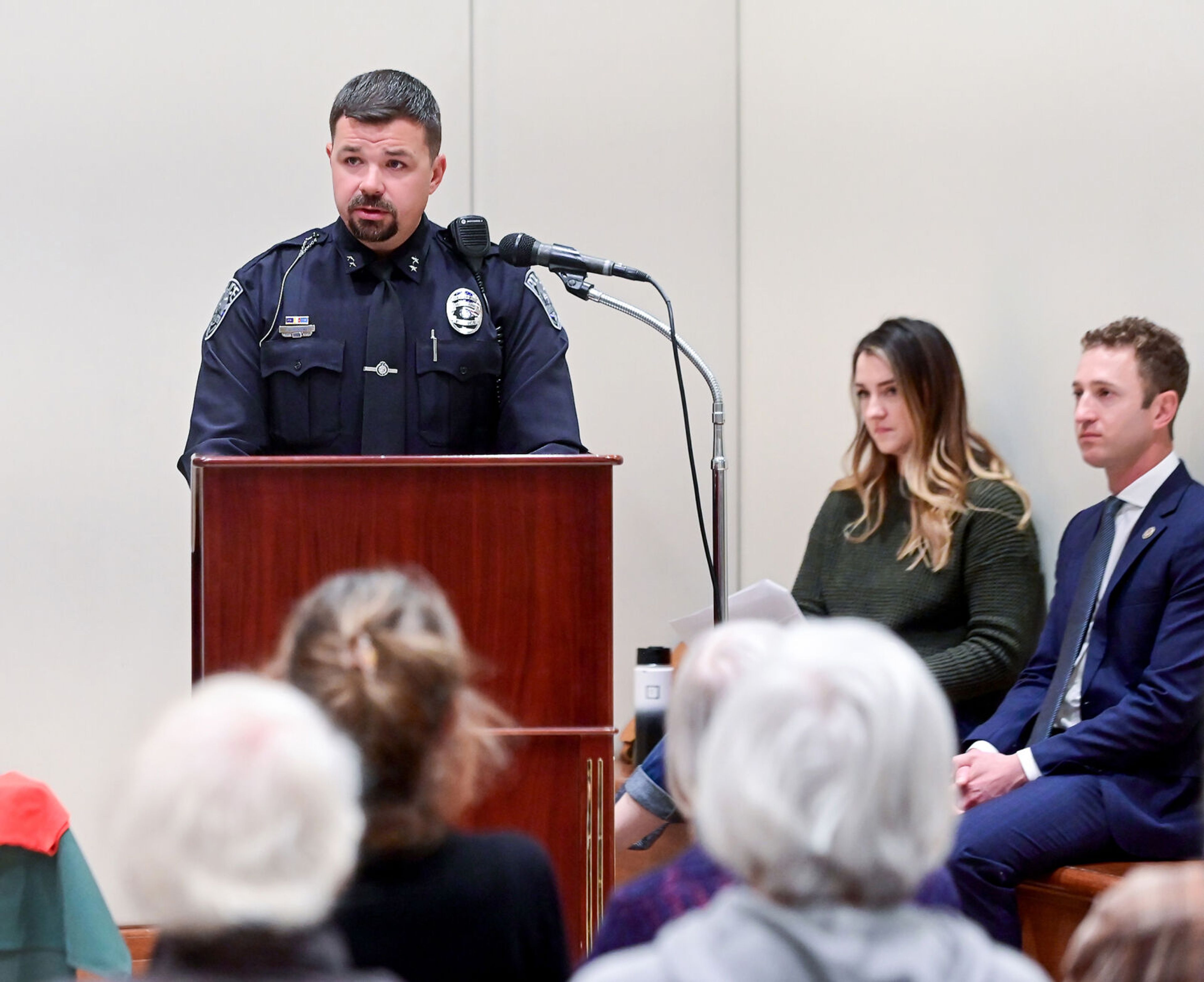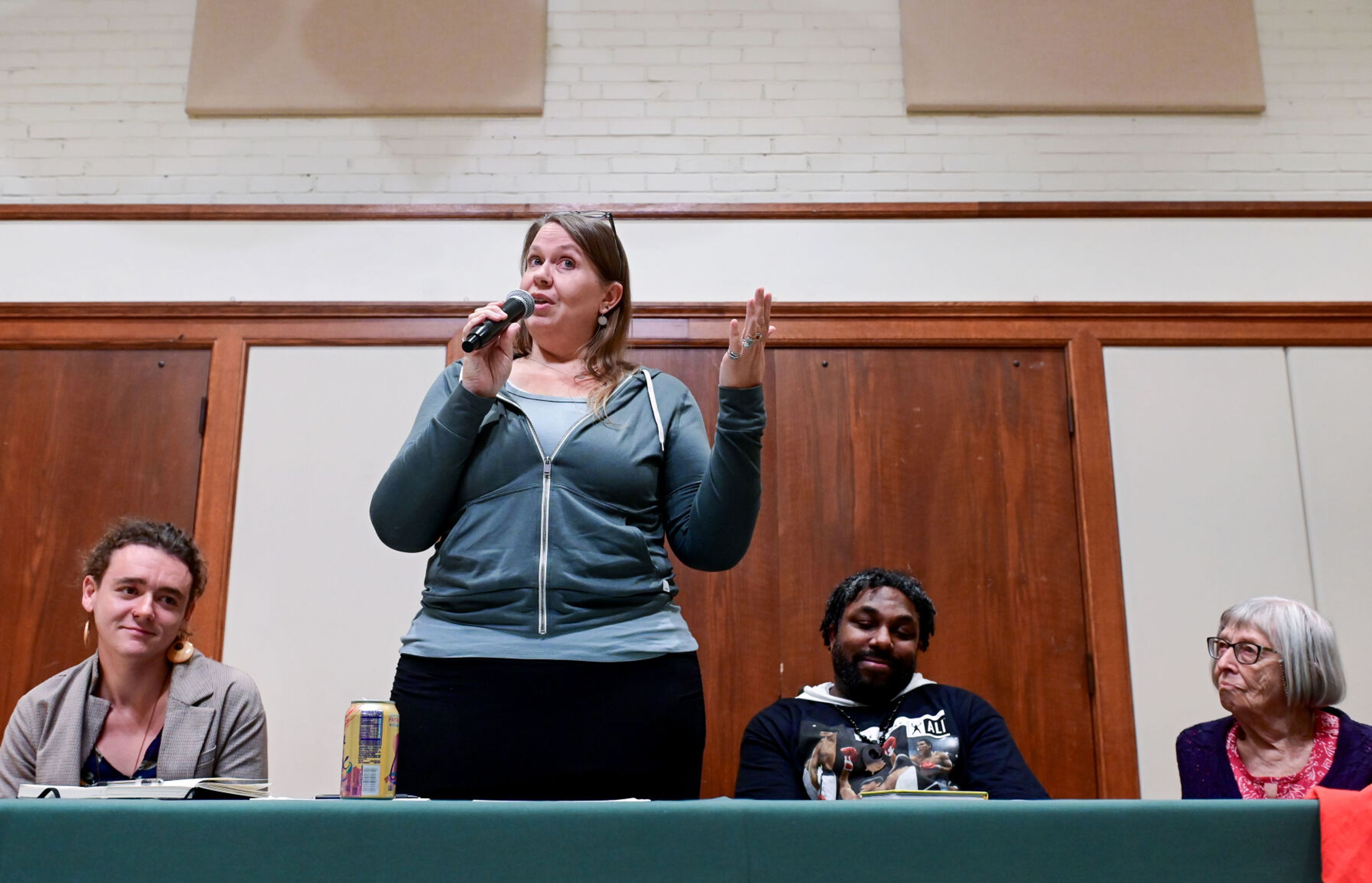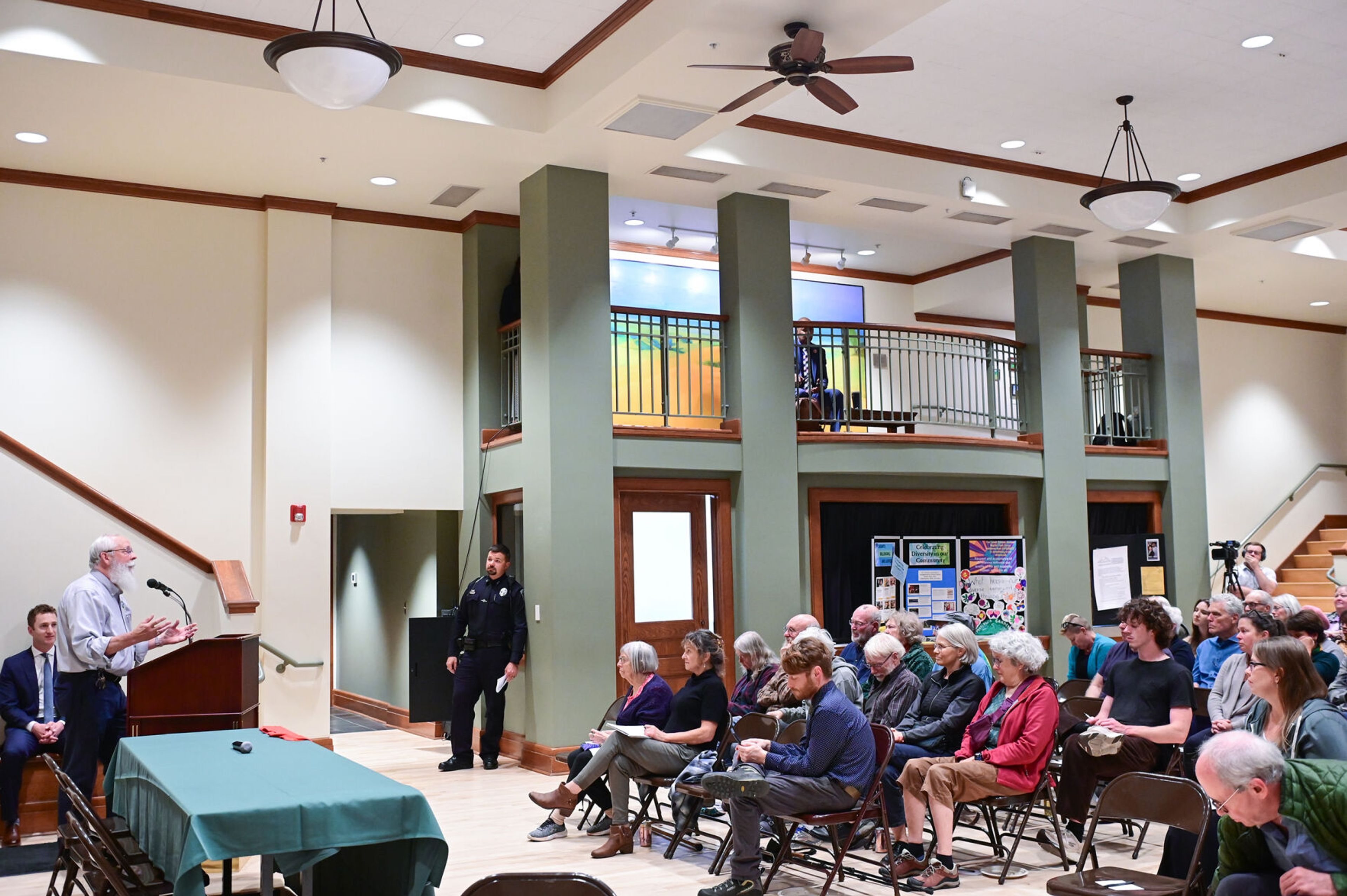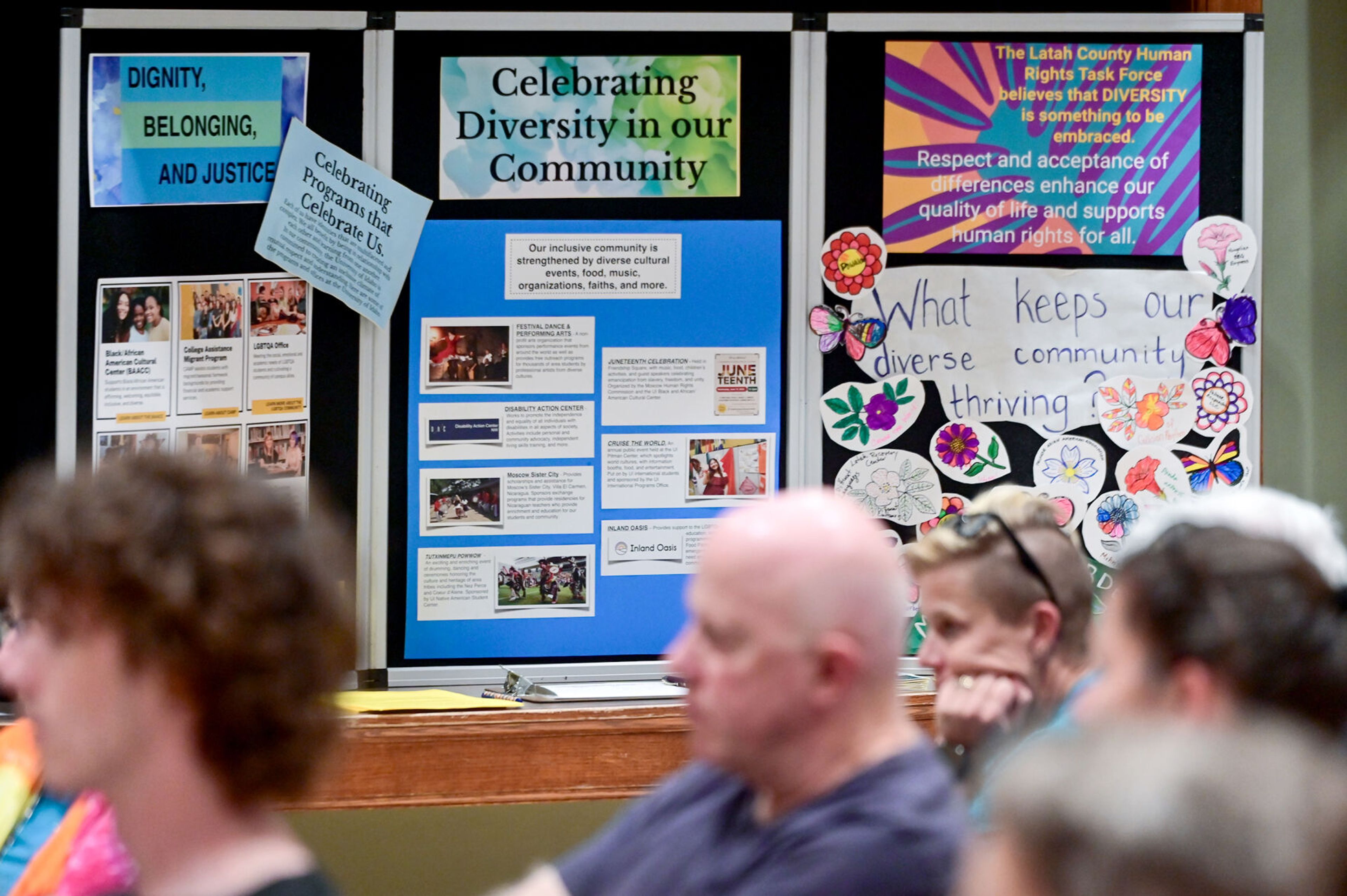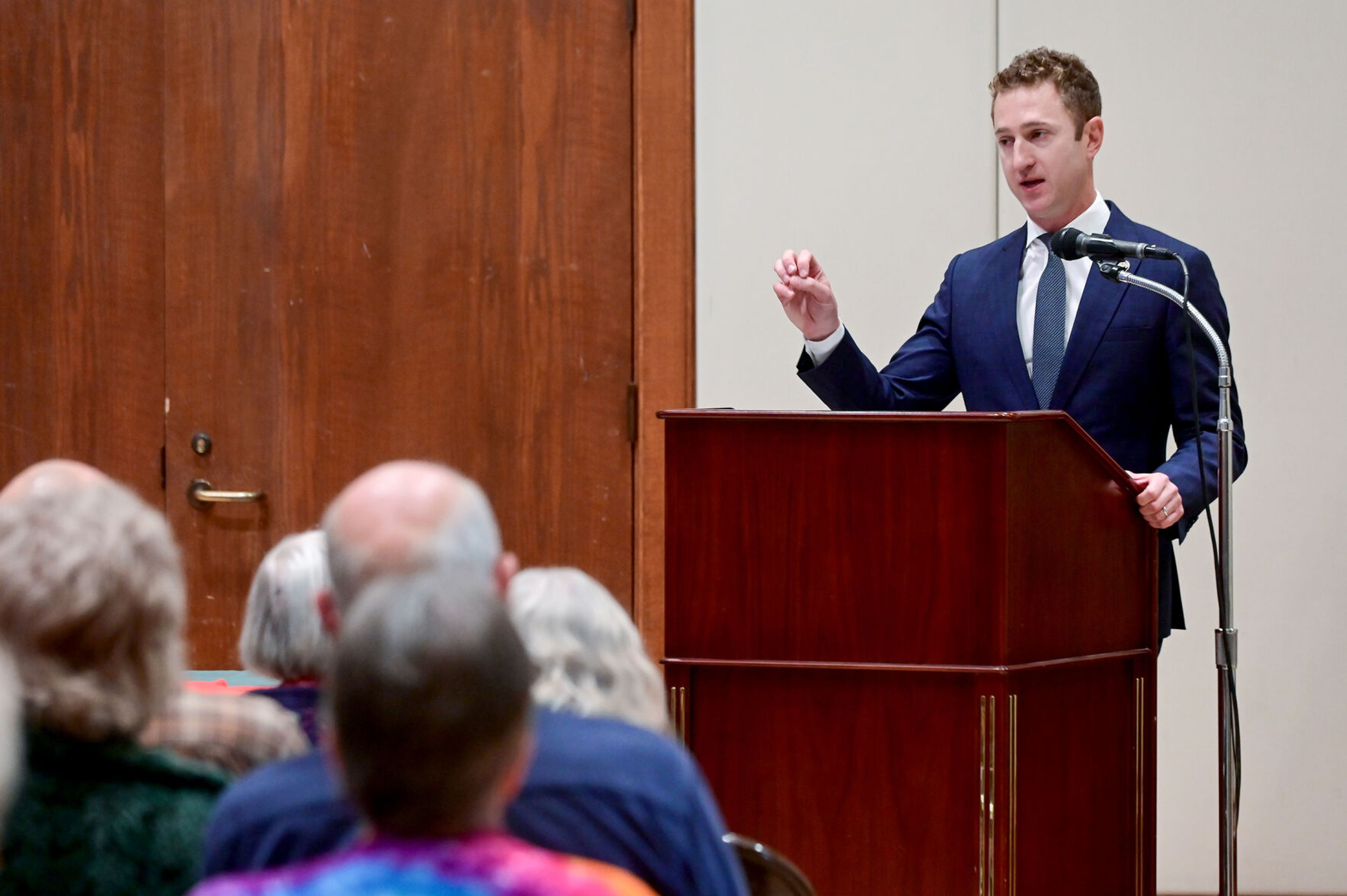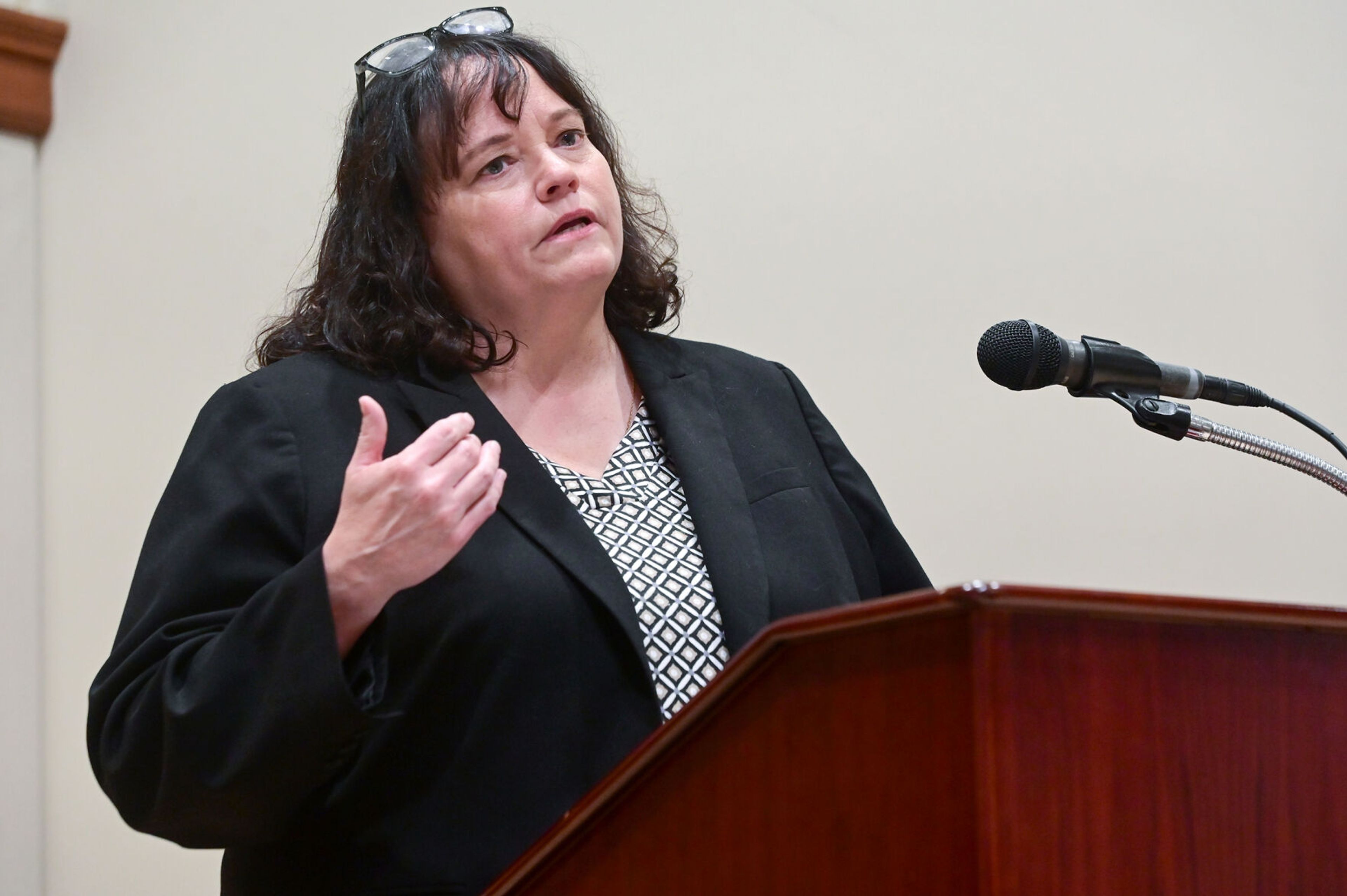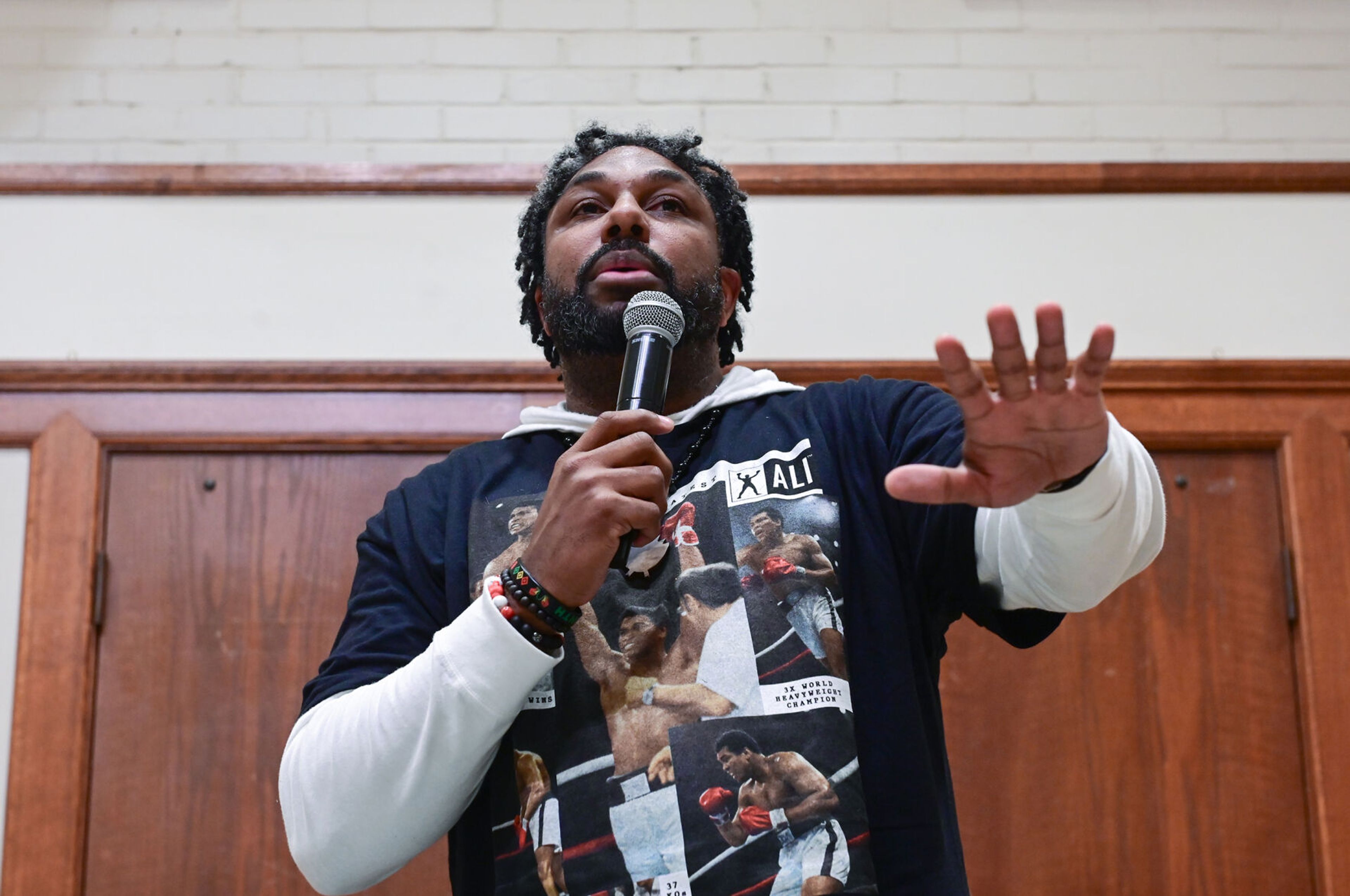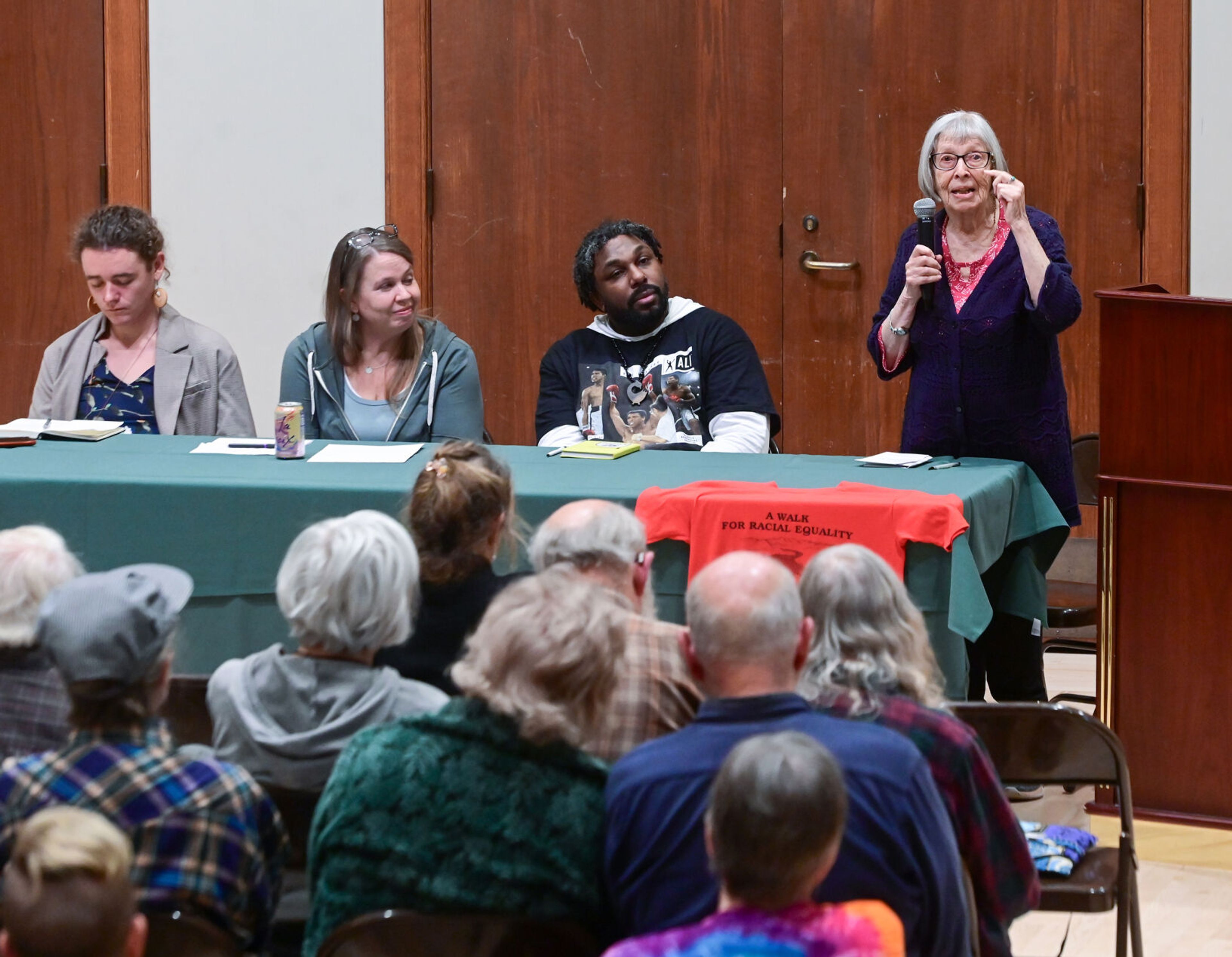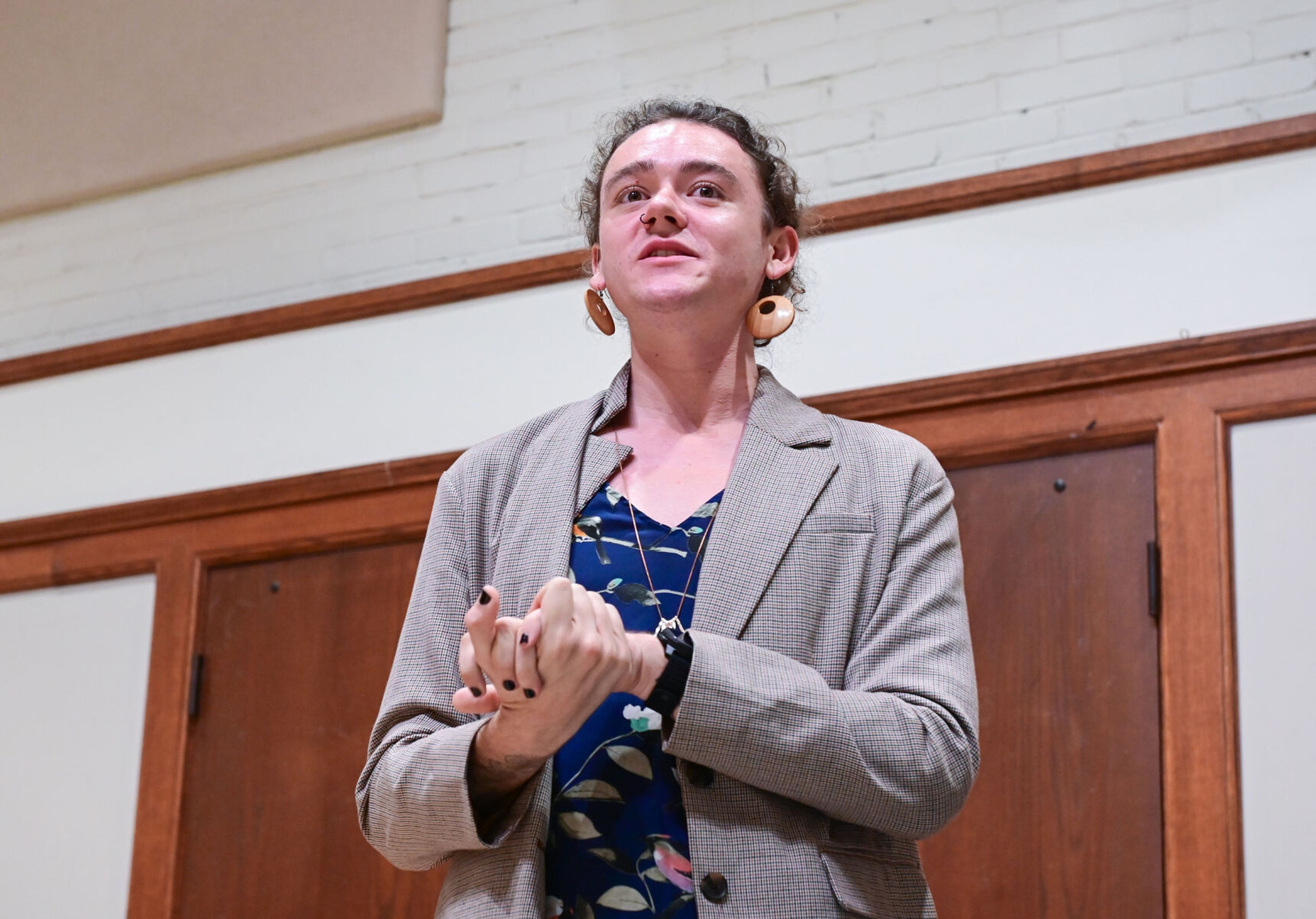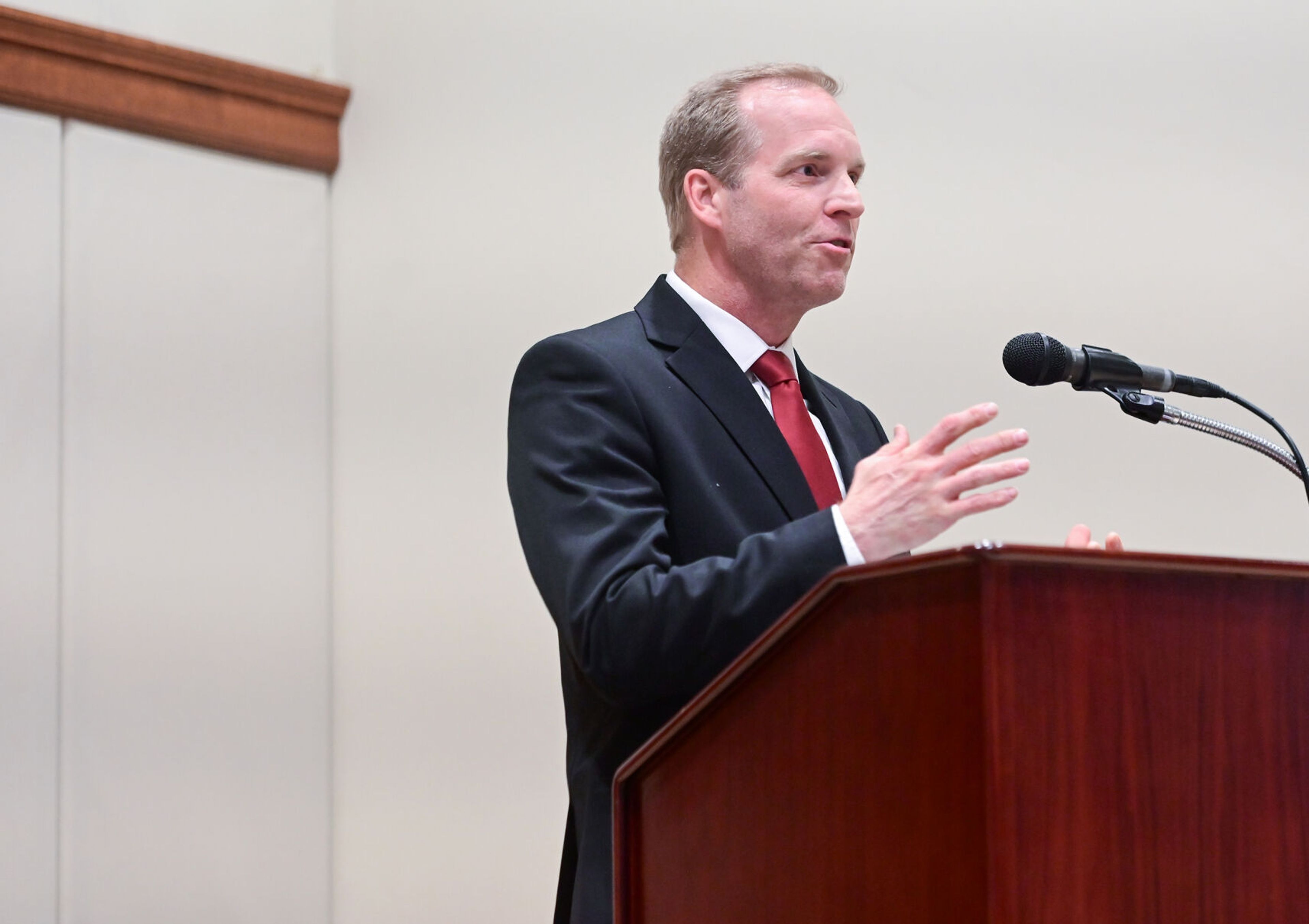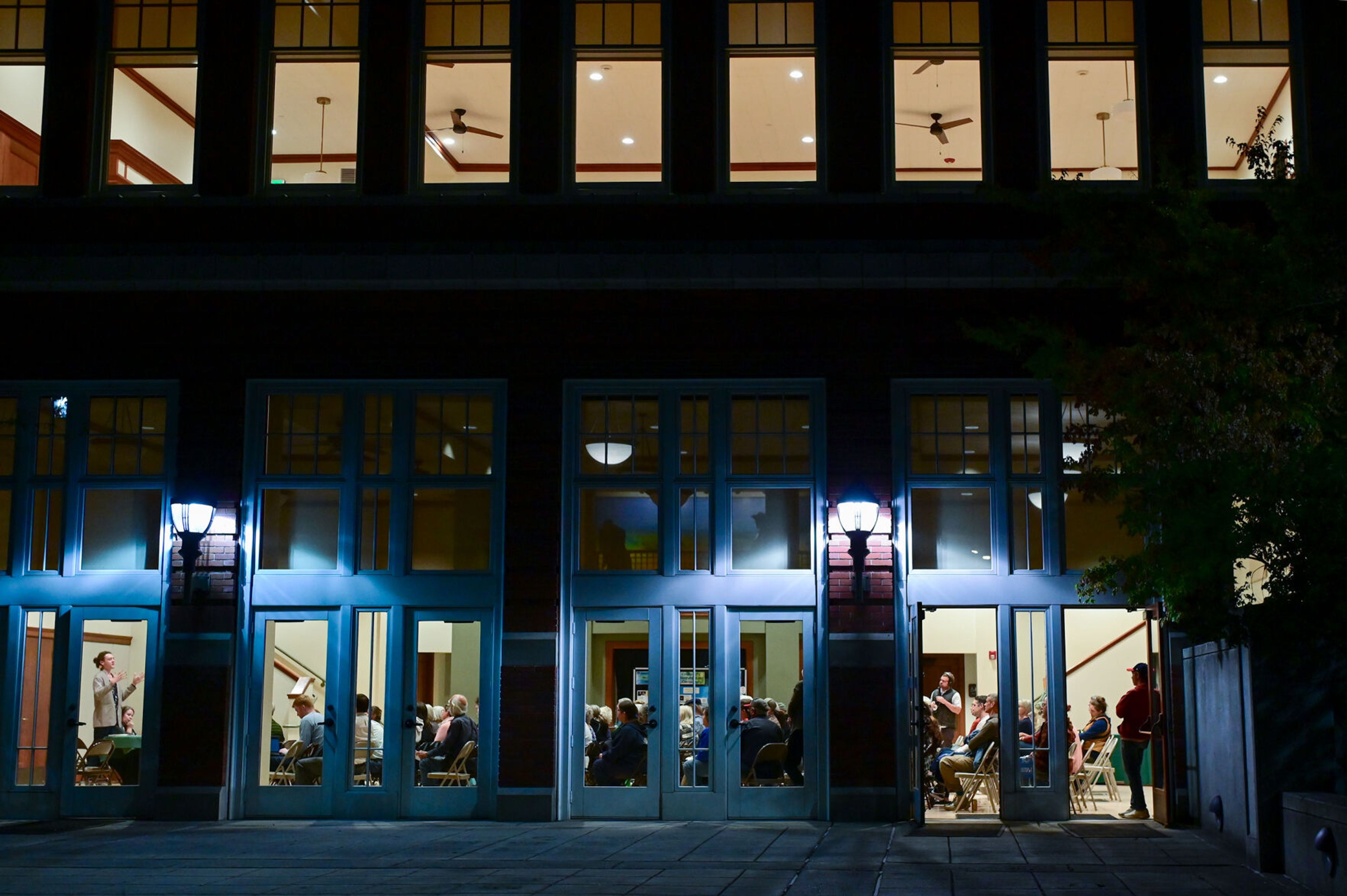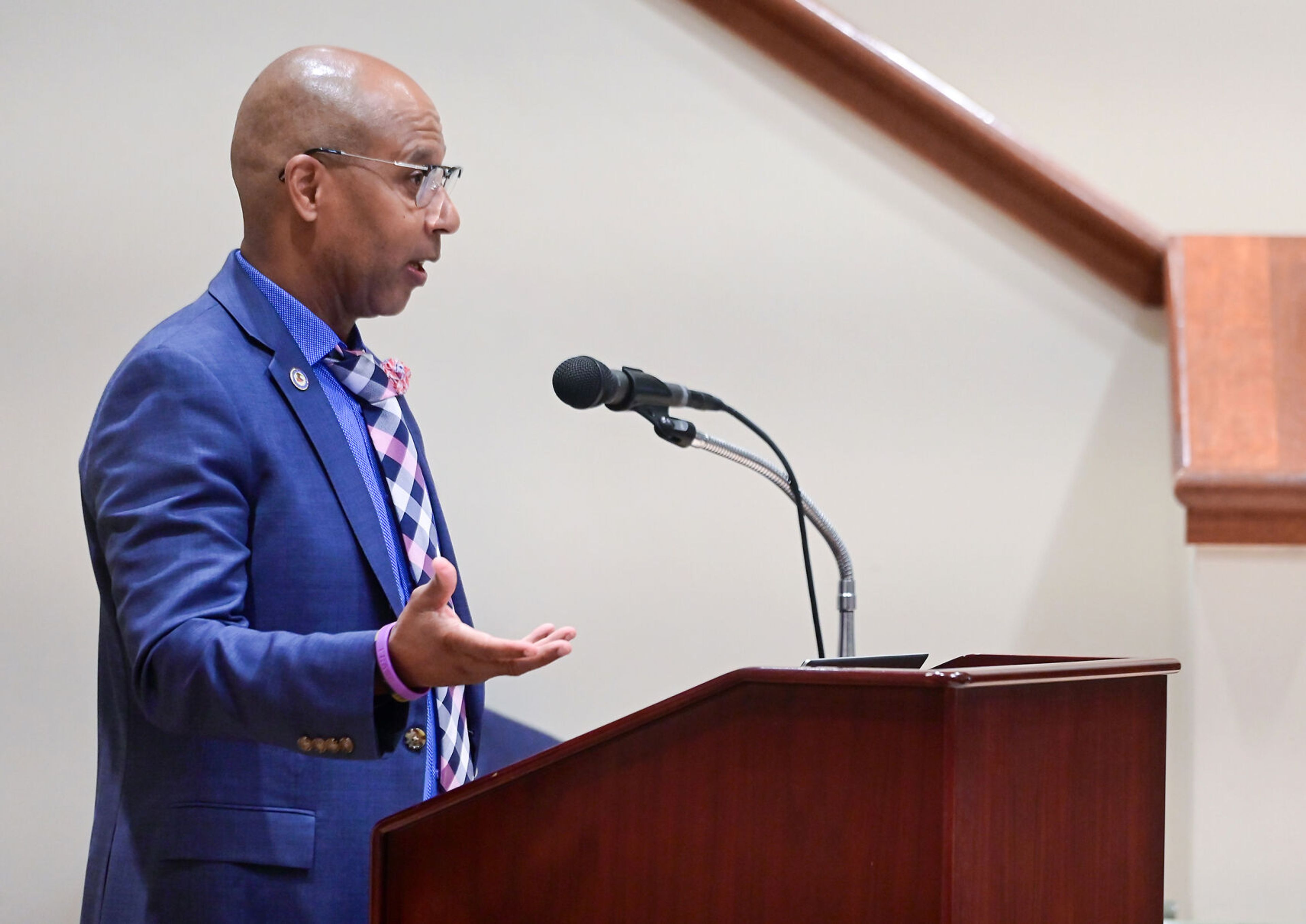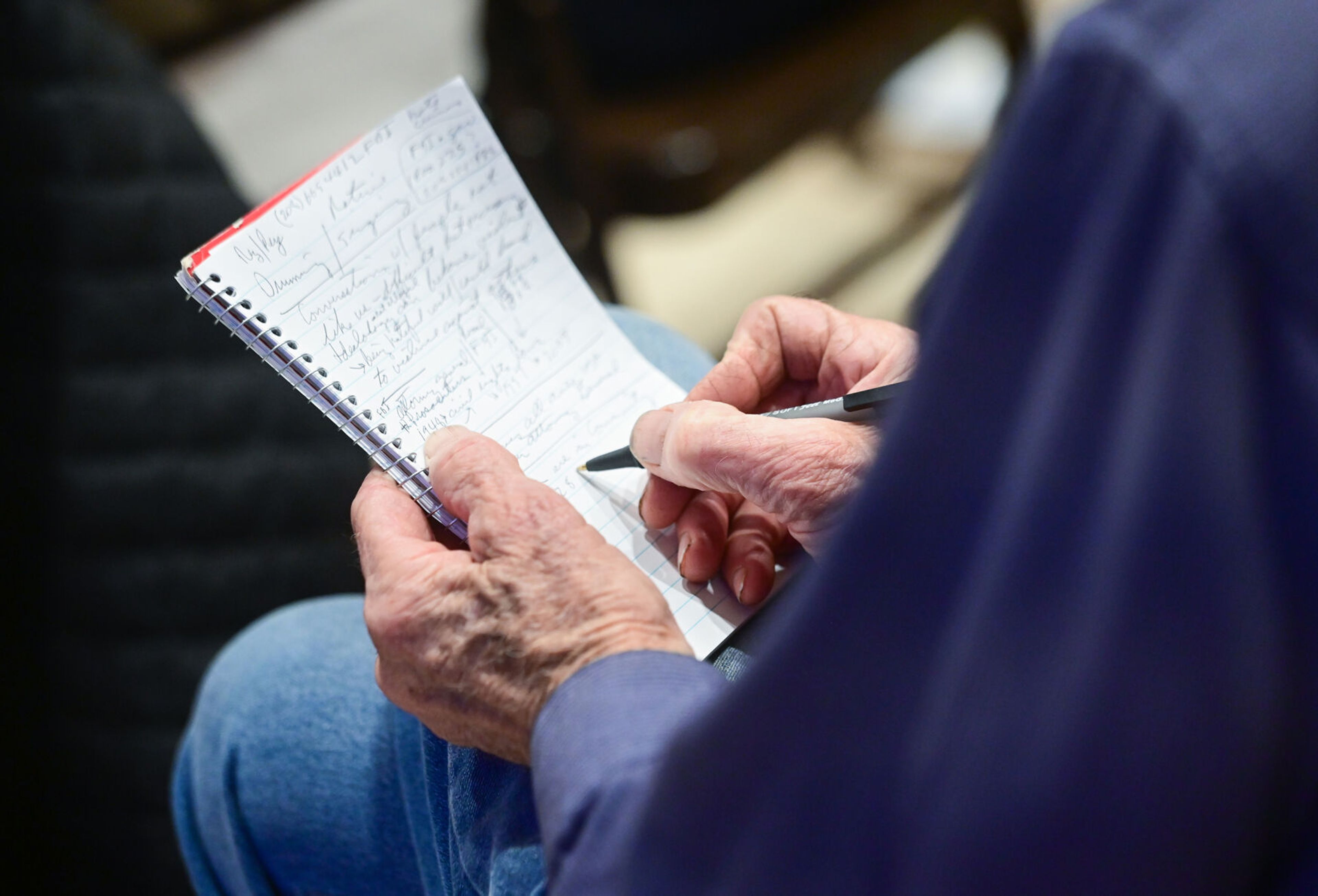‘Hate has no home in Moscow’
Officials encourage people to report incidents of discrimination in the community
MOSCOW — Law enforcement officials on Monday encouraged the Moscow community to report incidents involving hate, even if they do not rise to the level of a crime.
The Moscow Human Rights Commission and Latah County Human Rights Task Force helped organize a panel discussion called “United Against Hate” that focused on how to address acts of hate and discrimination. Approximately 100 people gathered at the 1912 Center to take part in the event where law enforcement and local community members spoke.
The event focused on ways to protect people from discrimination based on race, ethnicity, gender, religion and other categories that are considered protected classes by the government.
Moscow Police Chief Anthony Dahlinger said his department tracks reported incidents of bias against these protected classes. Since 2020, he said, there have been 40 reported incidents. So far in 2024, there have been five. One of those reports led to multiple people being charged with a crime, he said.
Dahlinger said it is incumbent on community members to keep a watchful eye and report incidents of discrimination.
“Hate has no home in Moscow,” he said.
Members of local law enforcement, the Department of Justice and FBI spoke about the history of hate crime laws in the U.S., and the sometimes tricky distinction between protected free speech and a crime.
United States Attorney for the District of Idaho Josh Hurwit said that hate by itself is not illegal, but criminal violent acts are usually the “end product” of hate.
That is why FBI special agent Bryant Gunnerson encouraged people to report incidents of hate, even if they do not rise to the level of a crime. Yelling something hateful out of a car window is not a crime, he said, but it can show that person has a bias. If that person later commits a crime, these reported incidents can prove that bias, and lead to a criminal charge.
Hurwit encouraged people to call law enforcement if they have questions about what constitutes a crime.
Three community members spoke about their own experiences facing discrimination. Moscow Food Co-op manager Melinda Schab said her store had to file a trespassing order against a man who tore down a Black Lives Matters sign from the building. Nick Koenig, vice president of the nonprofit Inland Oasis, said he has been called homophobic slurs. Mario Pile, director of the University of Idaho Black and African American Cultural Center, said black voices are not being heard when it comes to important community decisions.
Schab, Koenig, Pile and Latah County Human Rights Task Force chairperson Joann Muneta encouraged people to intervene if they see acts of hate in the community.
Pile said people can’t let their fear of offending people stop them from speaking out against discrimination. He said stopping hate in Idaho can’t be done with a “pat on the back.”
Muneta said community members cannot ignore discrimination just because it may not affect them personally.
“You can’t opt out of the discussion,” she said.
Kuipers can be reached at akuipers@dnews.com.
